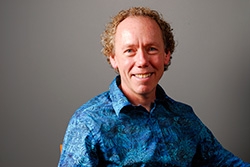Extension for Community Healthcare Outcomes, better known as Project ECHO, is a multi-disciplinary collaborative model of medical education and care management that helps increase access to specialty care and “de-monopolizes” specialized services. The model facilitates a virtual peer-to-peer group via video conference for primary care providers and empowers them with new knowledge to manage challenging patients with selective types of complex chronic diseases.
Project ECHO started in 2003 by looking at Hepatitis C, and has since evolved to include supporting patients with HIV, chronic pain, rheumatoid arthritis, and other chronic complex diseases. These diseases are often a challenge for a primary care provider to manage alone because the diagnostic and therapeutic tools required to support these patients are very specialized.
Weekly group sessions are about sixty to ninety minutes long, and the group usually meets over twelve to twenty sessions. At each session there is usually a short lecture from the specialist about an aspect of the chronic complex disease. All of the participants need to present at least one of their patients with this clinical problem during the course of the series of sessions. The patient background and history are presented along with what the provider has done, what they’re doing, and what issues they’re having. This is followed by a case conference group discussion of the patient being presented. Using this format the provider learns from their peers and colleagues more about that disease, how to better manage the case, and ways of supporting the patient more effectively.
The ECHO model allows primary care providers in remote areas to provide more complex care for their patients so that these patients do not have to travel to see a specialist, or if they do, they travel much less frequently. This can result in cost-savings for the patient, their family, and the healthcare insurer. It can also increase job satisfaction for the provider, reduce professional isolation and improve the doctor-patient relationship. The effectiveness of the ECHO model was confirmed in an article in The New England Journal of Medicine entitled Outcomes of Treatment for Hepatitis C Virus Infection by Primary Care Providers.
The ECHO model has caught the interest of many different states and provinces outside of New Mexico, including Ontario. Project ECHO Ontario Chronic Pain is led by Dr. Ruth Dubin and Dr. Andrea Furlan, and is supported in part by the Ministry of Health and Long-Term Care (MOHLTC) and the Ontario Telemedicine Network (OTN). Using the hub and spoke model for knowledge exchange, Project ECHO Ontario Chronic Pain uses OTN’s videoconferencing solutions to facilitate group sessions.
MetaECHO Conference
Last year, I attended the inaugural MetaECHO conference where I had the opportunity to learn about the latest developments in the ECHO model. The success of the ECHO model in New Mexico has been widespread. Most HCPs who have participated in the model now feel that this concept is an integral part of their life-long professional obligation to actively learn. From a knowledge management perspective, various sessions are recorded and transcribed for future analysis. Internationally, the ECHO model has been replicated in Ireland, India, and Uruguay. The second MetaECHO conference will be held in April 2016 in New Mexico.
How to Get Involved
If you are an Ontario health care provider and want to get involved with Project ECHO Ontario Chronic Pain contact them at echo.ontario@uhn.ca.






